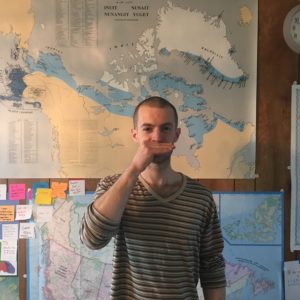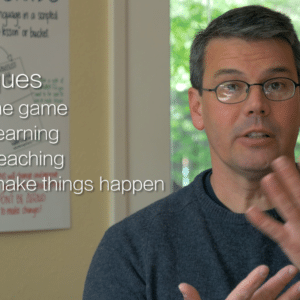We often say, “WAYK is a copy-cat game, not a learning game. No learning allowed!”.
This can seem rather tongue-in-cheek, as if we secretly mean, no really, we want you to learn, this is just a way to make it fun.
But no – though seemingly paradoxical, we actually mean it. WAYK really is a copy-cat game, not a learning game.
As you may imagine, this is an advanced and subtle understanding. It’s not good press to claim that you offer a way for people to not learn something.
The point is, what we call “accelerated learning” out of convenience really is something radically different than what we normally associate with the word “learning”. Think of your conventional school experiences with learning mathematics, writing, foreign languages, civics, and so on. If you got an “A” in these courses, you must have “learned” something. Afterwards, could you fluently use your Algebra to successfully manage a spreadsheet? Could you fluently write your memoir? Survive in another country, immersed in the language? Use your civics to come up with good governance for a neighborhood association?
If you had anything like a mainstream experience, the answer is of course “no”. We’ve so effortlessly absorbed this notion of “learning”, this idea that “knowledge of or about something” means you’ve been successful.
What if, however, your primary value, rather than surviving in an institutional setting, or adding to your encyclopedic knowledge of trivia, was fluent competency, the ability to move effectively and gracefully through the world? In a do or die situation, this value is mandatory. In any such “do or die” field, like firefighting, the military, police, EMT, the training must deliver competency.
This means, the training must involve doing. It must involve application to a real (or nearly real) situation. Which is not a requirement of conventional “learning”.
To acquire real competency, your training must involve seeing effective performance, and duplicating it until you have it down.
Which is why WAYK is nothing more than a highly orchestrated experience of copy-catting.
You observe a fluent fool with a language or skill, and you want to have that skill in your body. You want to fluently do, think, or otherwise express your target skill. The proof that you can do something, is that you actually do it. And the road to getting to where you can fluently “do it” involves doing it, over and over.
This may seem obvious (obviously!), but then that begs the question of why we so rarely see training that focuses on doing, in the real or nearly-real situation. It may indeed be obvious, but it doesn’t seem to be common sense.
There is a story of captive wolves, so intelligent and observant, that they only need to see a keeper operate a complex, involved latch at a gate in their containment fencing once, before effortlessly duplicating the action, nosing it open and escaping. These wolves are WAYK masters.
There are many martial-arts traditions where the students’ job was to “steal” techniques from their masters. How did they do this? The only way they could – not from a secret book, or sacred mantra, but by deeply observing the master performing the skill and duplicating it in their own body.
Once you’ve sufficiently internalized WAYK techniques into your everyday thinking and behavior, you’ll begin moving closer and closer to this goal of rapidly absorbed competency, where the time between you and any new competency continually shrinks, no matter what the skill. Perhaps you see someone do a cartwheel, make a wooden table with hand-tools, repair a flat, fly a plane. How quickly can you absorb that ability and express it on your own?
Are we (Evan and Willem) WAYK super-spies, capable of instantly learning any complex skill? Well, no (not yet!). The point is, this is the way human beings are built to learn – rapid competency is built-in to ancient ways of learning. It’s only recently we’ve begun to swap this for more institutional modes.What we’re all working on together is a way to reclaim and further accelerate what comes naturally to us.
So we must change our goal – competency, not knowledge. Copy-catting, not learning. And this revolution in learning takes a whole community of play. As you know, we’ll only all get there together.





